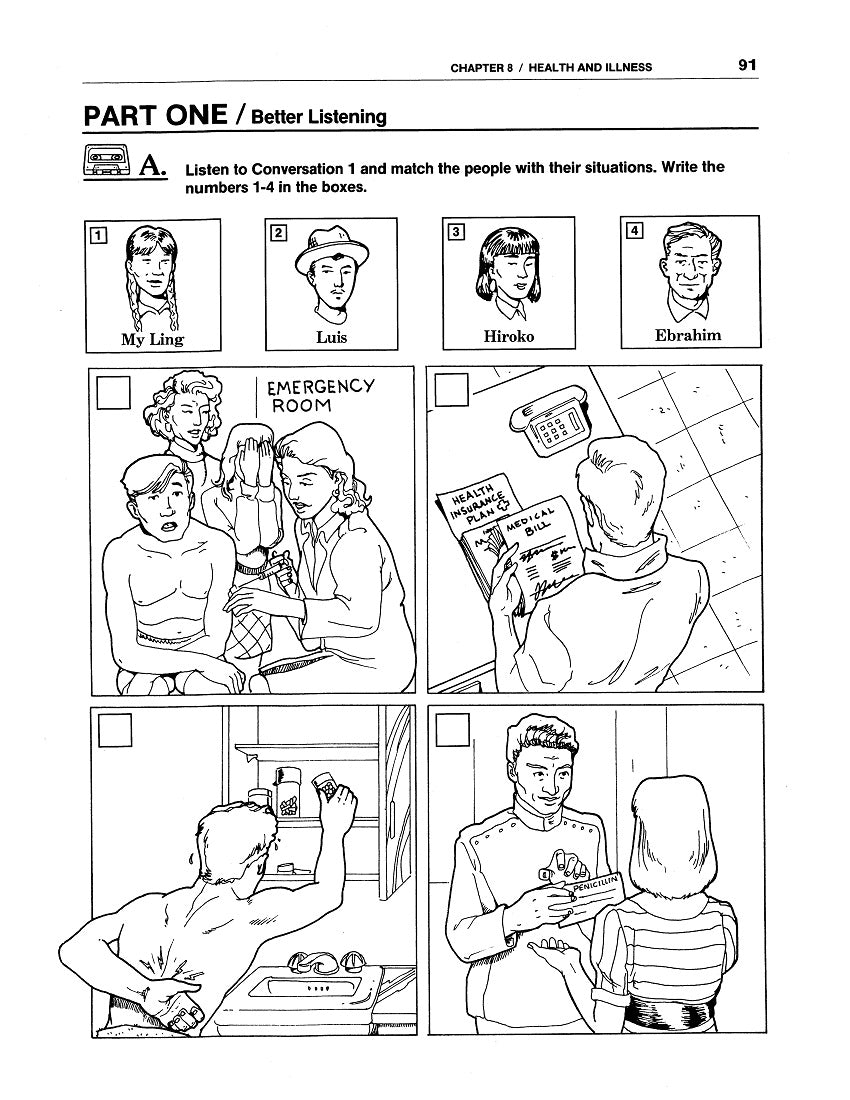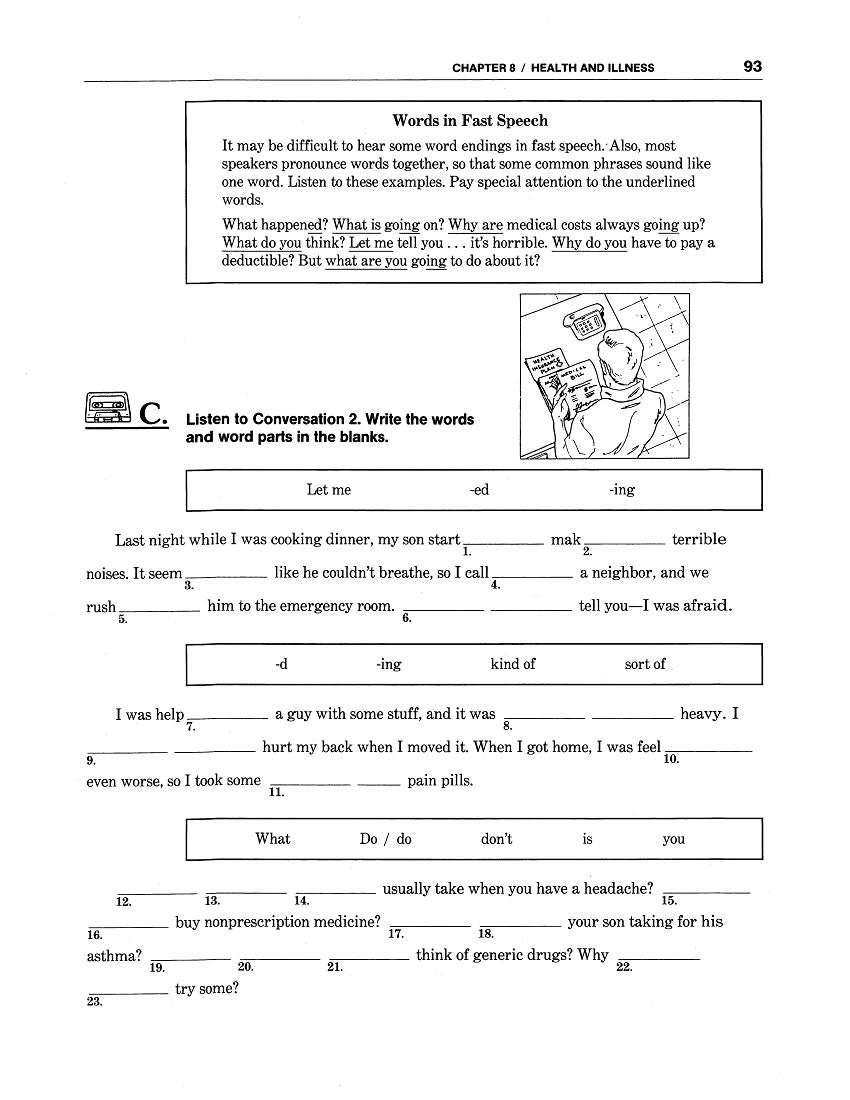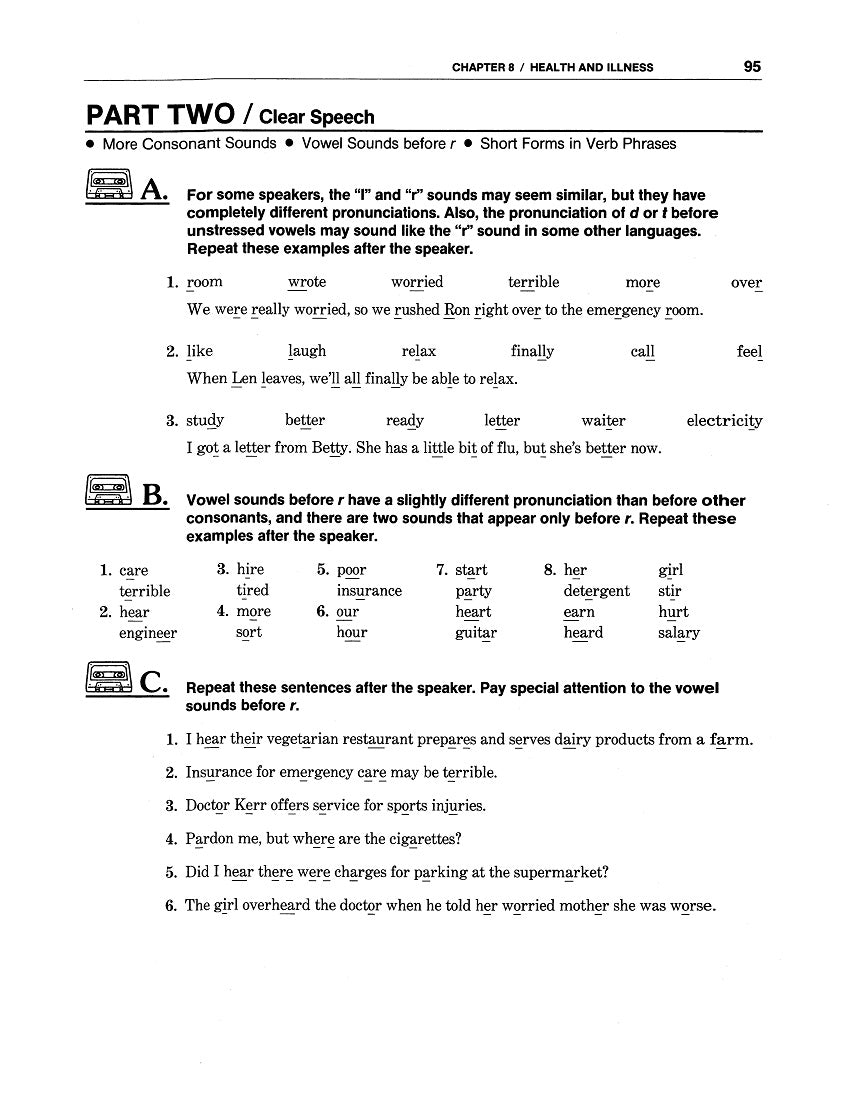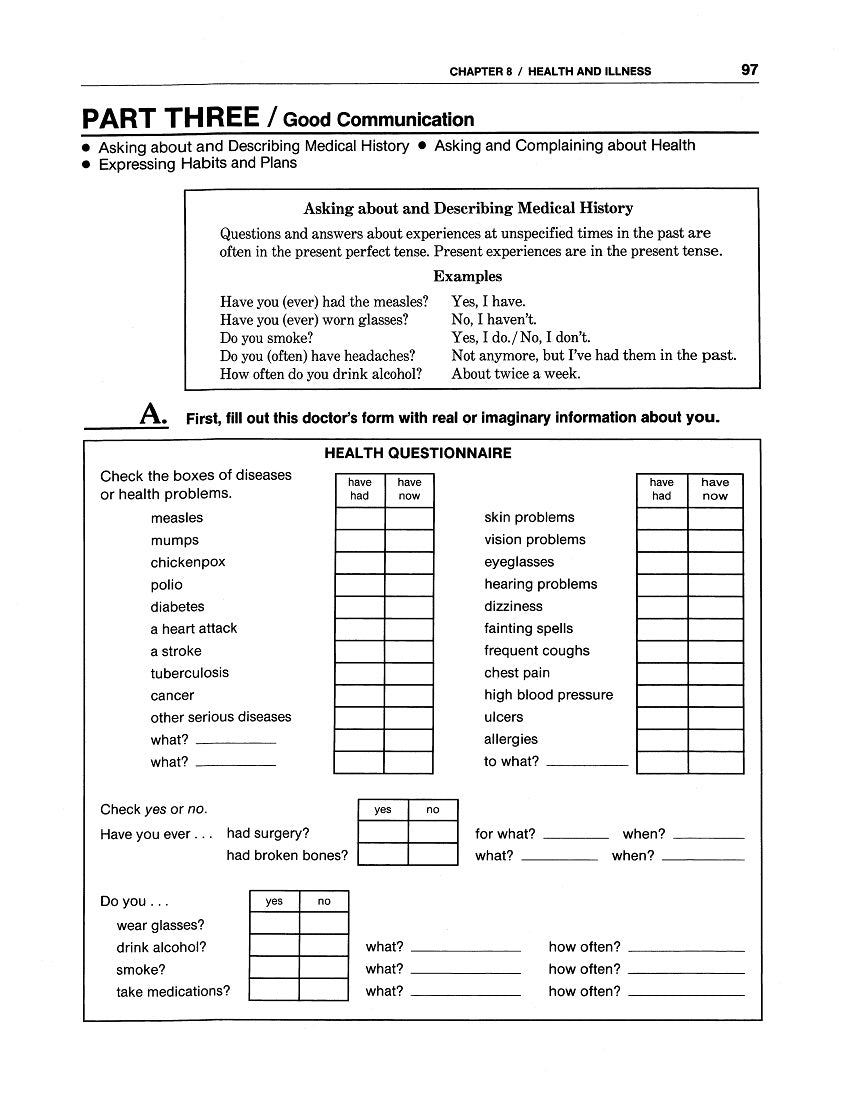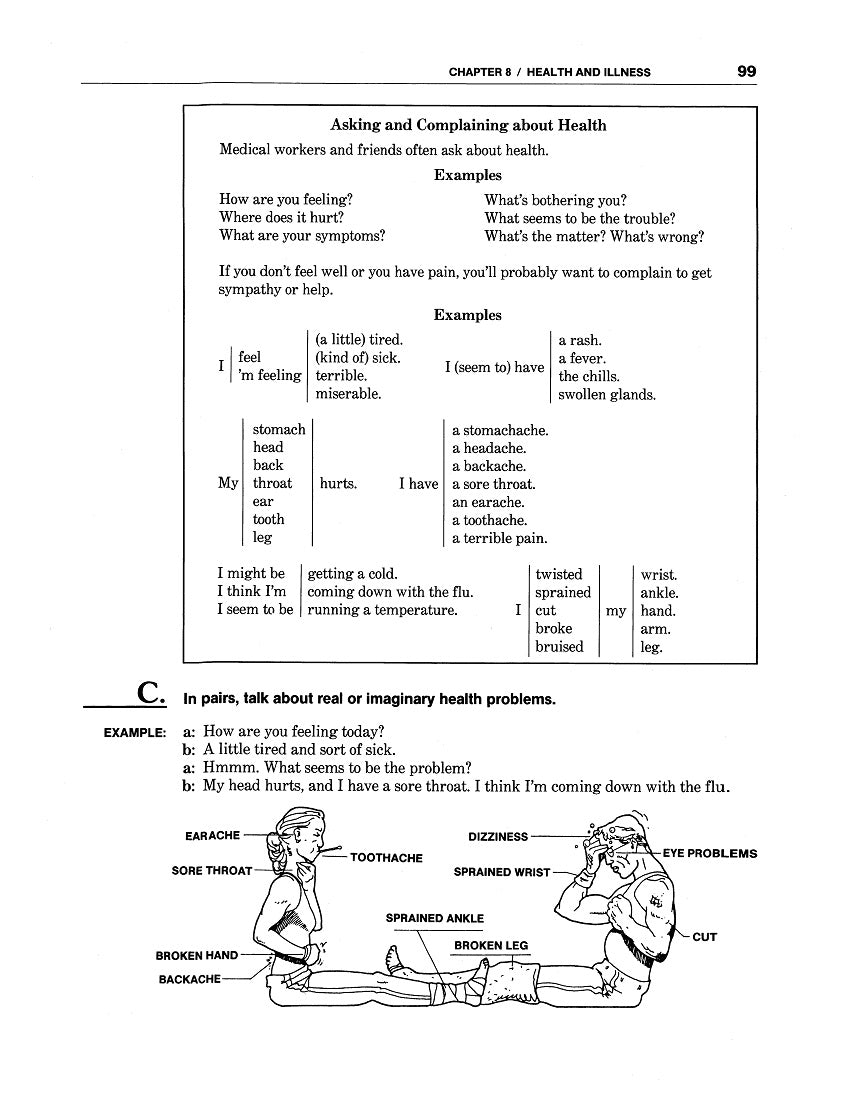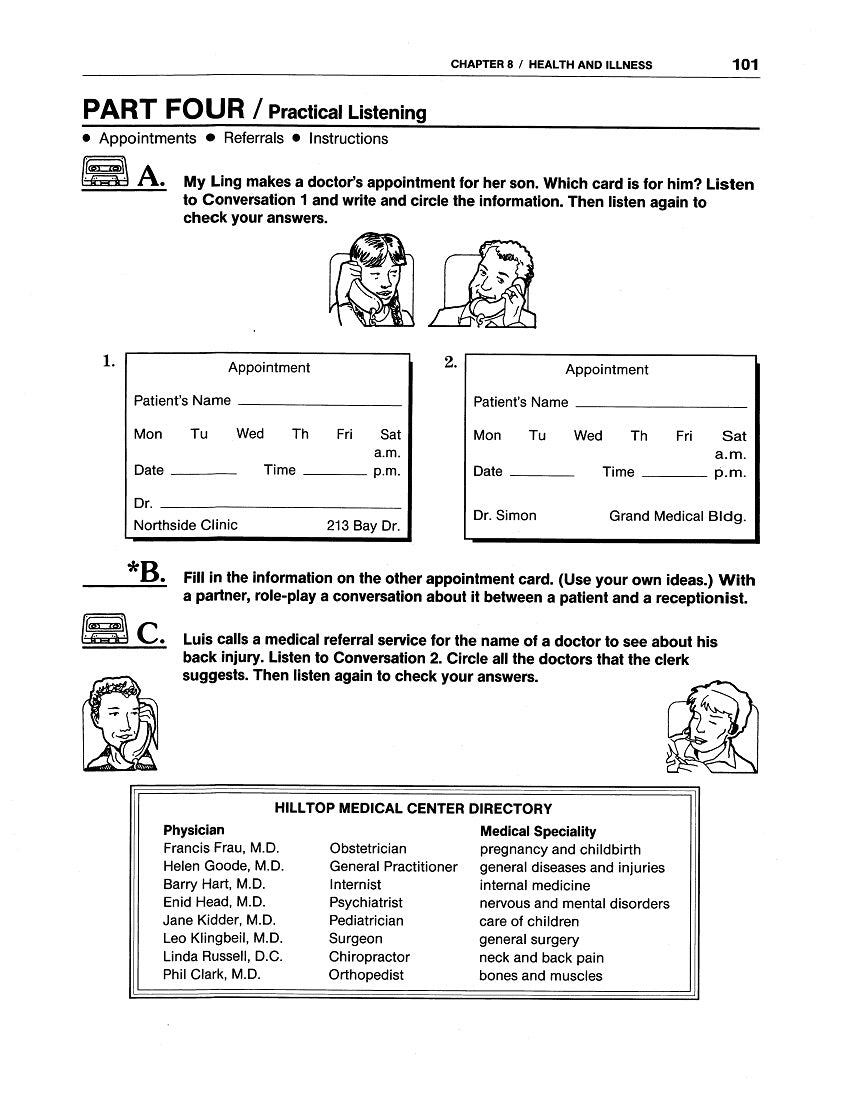Work/Life English
E-06.08 Listen & Talk About Health & Medical Information
E-06.08 Listen & Talk About Health & Medical Information
An Immigration Story
WorkLife English: Competency-Based Listening/Speaking, Book 3; Chapter 8: Health & Illness
13 + 3 = 16 pages
Who It’s For: Language Teachers, Helpers, & (Intermediate & Above) Learners Used to Thematic Vocabulary, Audio in Context, Pronunciation Features, & Interaction—Now For Situations Involving Health & Illness
Why It’s Useful: After “laid back” Talk about Recreation & Entertainment, text users can follow analogous patterns to consider, learn, and share what to do in situations requiring “Urgent Care.” Staying calm, listeners hear descriptions of family situations plus questions and answers about medical procedures and costs. In Pronunciation sections, they practice the potentially confusing sound pair / l r /. They demonstrate their grasp of Good Communication techniques when “Asking, Telling, & Complaining About Health, Medical History, Habits, & Plans.” Practical Listening enables them to “Make Medical Appointments,” “Make & Get Referrals,” “Give & Follow Instructions.”
What You’ll Do:
[1] Competencies to acquire in relation to Health & Illness are many: knowing about Emergency Rooms, Injections, Generic Drugs, & Health Insurance; Appointments; Questionnaires; Prescriptions & Instructions; Medical Histories. Complaints, Intentions, & Plans are likely to come up too—in Simple, Compound, & Complex Sentences (with Clauses).
[2] How does Part One / Better Listening help language learners improve their Oral-Language Skills? It offers a five-part Audio Conversation on newcomers’ experiences with the U.S. Health System. By identifying stressed words that convey important ideas—and noting the “Words in Fast Speech” that put them into context, listeners collect Vocabulary and salient points to follow up on. In does Part Two / Clear Speech, they compare /l/ with /r/ and /d/ with /t/, listen closely to vowel sounds before /r/, and practice “short forms” that combine to with have, used, want, going, etc.
[3] Parts Three & Four have participants fill out Medical Questionnaires by Asking & Complaining About Health; make Appointments; use Directories; get Pharmacy info, and simulate other activities related to Health & Illness.
[4] The Download ends with AudioScript segments; Answers are available elsewhere.
Couldn't load pickup availability
